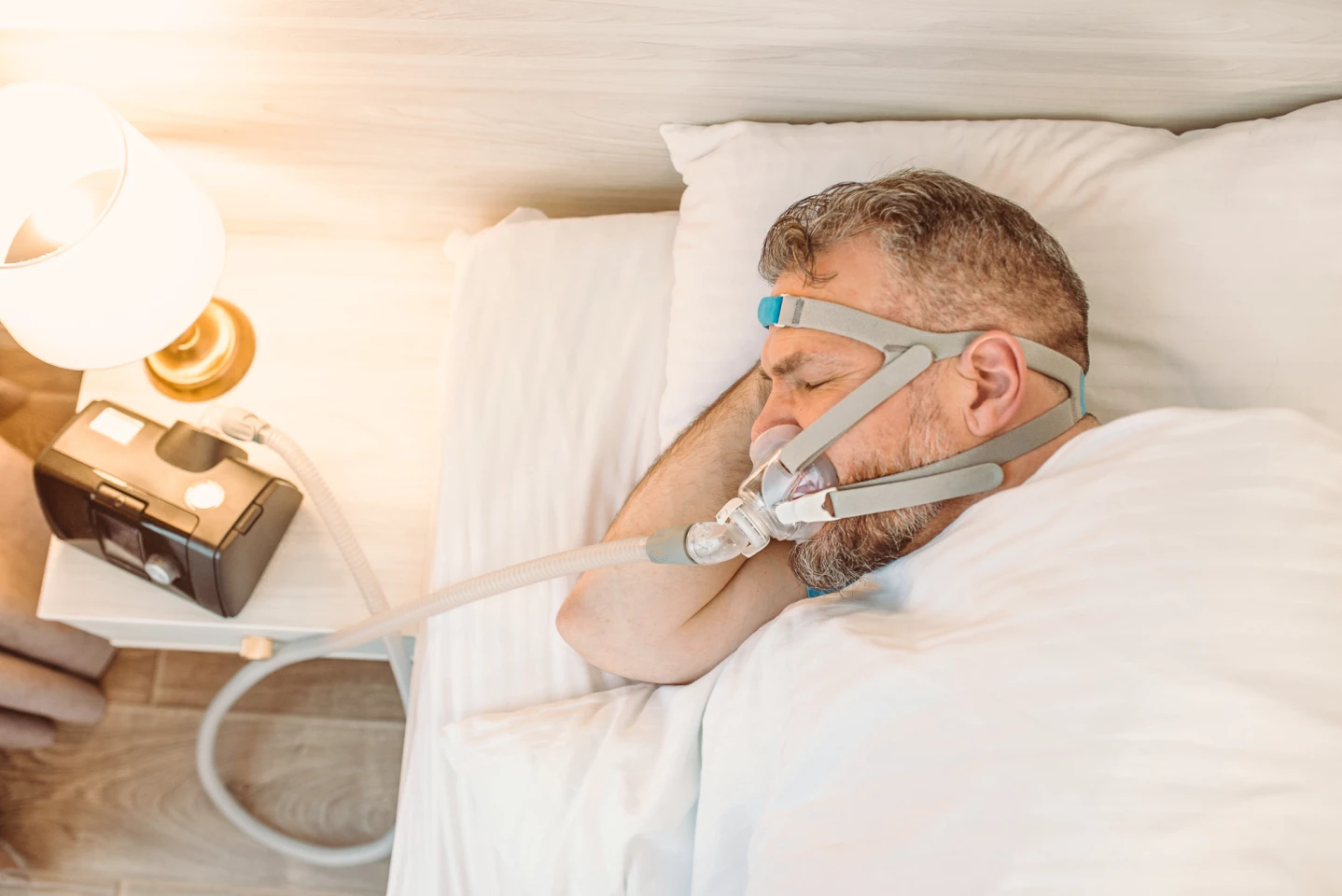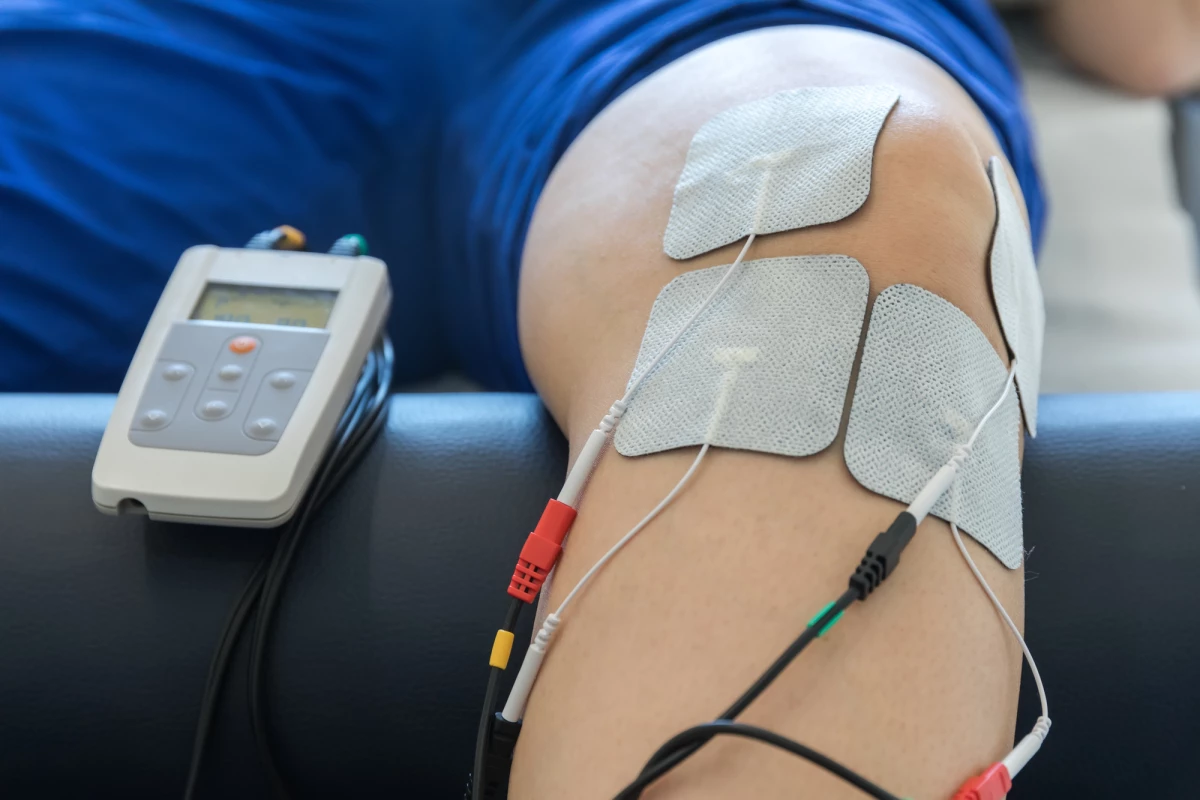One of the most common treatments for sleep apnea involves wearing an air mask while sleeping, which can be awkward and uncomfortable. A new study, however, suggests that a simple TENS muscle-stimulating system may actually work better.
While many people may think that obstructive sleep apnea (OSA) is just a fancy term for snoring, it's actually a condition in which people stop breathing multiple times throughout the night.
It typically occurs when muscles in the head and neck relax, causing the surrounding tissue to press on the windpipe. Not only do sufferers tend to snore loudly, they also experience daytime fatigue and have a heightened risk of heart disease.
OSA is commonly treated with a continuous positive airway pressure (CPAP) machine, which keeps the patient's airway open by pumping air into it via a mask that covers their mouth and nose. Sleeping while wearing such an apparatus can be difficult, though, causing many people to stop using it over time.

Led by Prof. Joerg Steier, scientists at King's College London recently looked to a much less intrusive alternative – transcutaneous electrical stimulation (TENS) machines.
The portable battery-powered devices are frequently used to alleviate muscle pain and stiffness, by delivering a pulsating mild electrical current through electrode pads adhered to the skin in the affected area. That current causes the muscles to repeatedly contract and relax.
In the TESLA (Transcutaneous Electrical stimulation in obstructive SLeep Apnea) trial, Steier and colleagues set out to see if TENS could reduce OSA by stimulating the genioglossus muscle, which is the strongest dilator muscle in the upper airway. A total of 56 test subjects were involved, all of whom had previously exhibited "a documented lack of adherence to CPAP therapy."
The participants were randomly divided into two groups, one of which self-administered TENS treatment every night via two electrode pads adhered to the underside of their jaw. The other group stayed with conventional CPAP therapy.
After three months it was found that people in the TENS group showed marked improvements in nocturnal breathing along with a significant reduction of daytime fatigue, as compared to the CPAP group. A larger multi-center trial is now being planned.
"A TENS machine is non-invasive, has little side effects, and is cheap," said Steier. "The TESLA trial shows us the potential of a new therapeutic option, transcutaneous electrical stimulation, and it will be interesting to see how the method can be used in clinical practice."
A paper on the research was recently published in the journal The Lancet.
Source: King's College London





